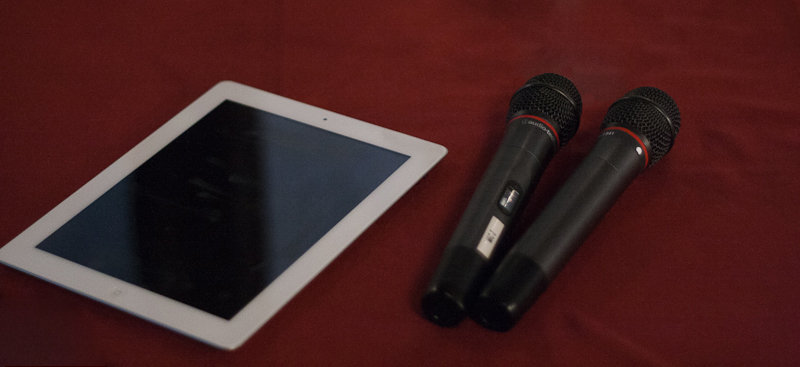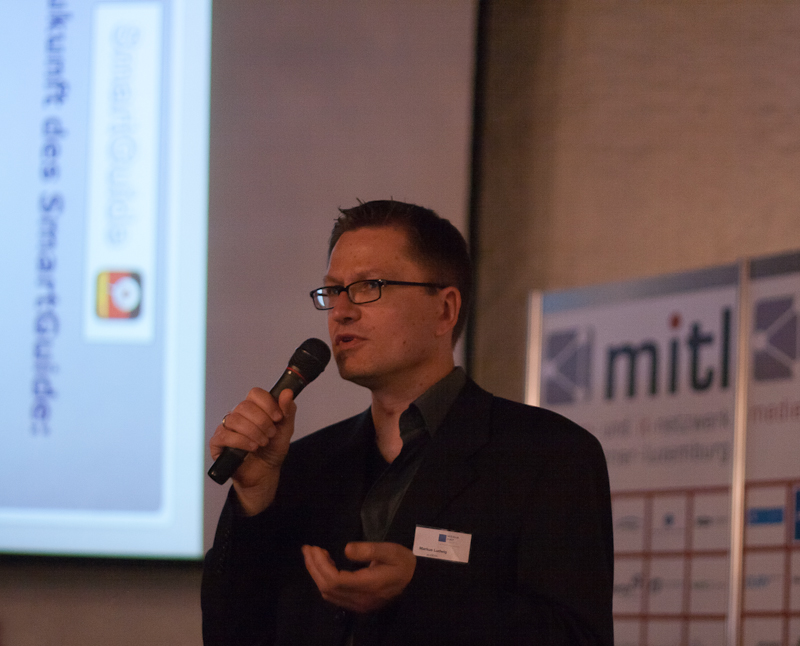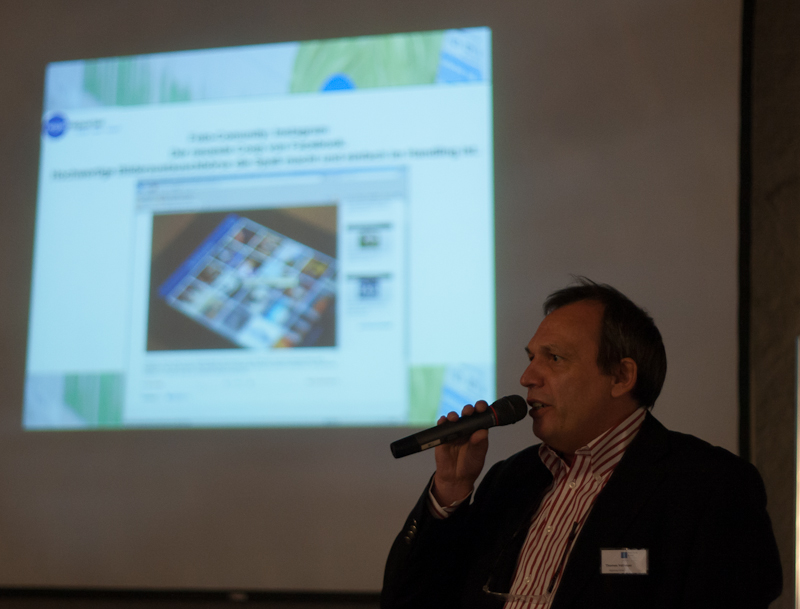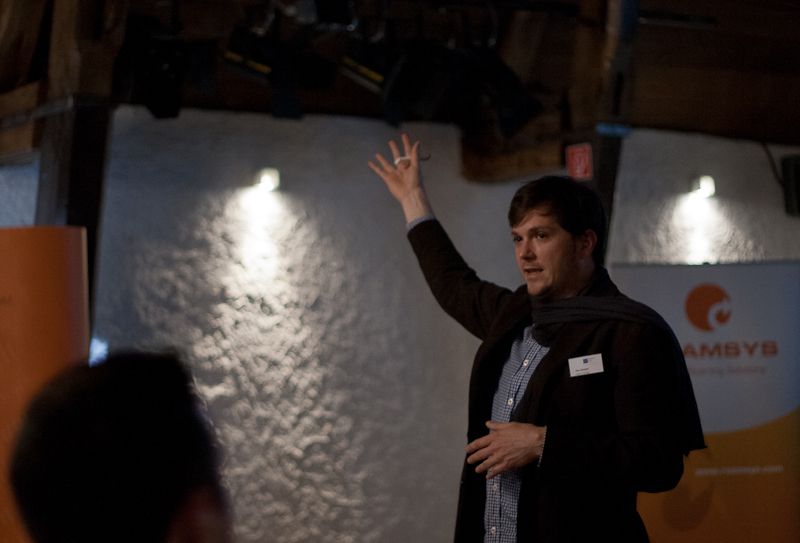Media Day 2012 Apps, responsive web design and mobile communication
Last week, creatives and media people of the region met at Schloss Niederweis where the second Media Day took place. I participated with a presentation on the creation of mobile apps for medium-sizes businesses. Now, it is about time to review the event and let you get an idea of the manifold presentation, covering apps for the tourism sector, responsive web design and the impact of mobile communication.

In order to keep the post short, I will divide it in two parts. This post will cover the practical part of the event. The next post will talk about the more political presentations, focusing on the supply with broad band internet connections in the region. Unfortunately, the presentations are only available in German.
Markus Ludwig: an app for the tourism sector

Markus Ludwig of Audiobits showed the iOS app Smart Guide. It offers an audiovisual city walk to tourists. He played parts of two tours. I particularly enjoyed a media project with an elementary school in Trier, performed by the pupils themselves. This made it very likable, and I especially liked the simple, hand-drawn images. I wondered why there were no animations during the introduction, which relied on spoken word and static images. However, maybe the visual stimulus had been reduced on purpose, so that users can listen to the texts while walking.
Thomas Vatheuer: a lot of buzz words and though-provoking impulses
The journalist Thomas Vatheuer focused on how mobile communication affects our thinking and acting. He started with the following statement, delivered with a wink: “When the cloud becomes a shitstorm, only the app can call the flash mob for help.” Obviously, this doesn’t make sense, but it demonstrates well the role buzz words play in our discourse on media.

Vatheuer’s presentation was an entertaining discussion of pros and cons of the social web. On the positive side, he stressed that we can learn from each others on the web and collaborate: “You are what you share.” He considered the public control of the community a return of discipline. He also included a couple of well-known examples, like the photo sharing service Instagram, or the social running platform Runtastic, including higher motivation due to competing with friends.
On the negative side, the moderator reminded that the public pillory is back. He also asserted that the net makes us oblivious, leading to losing time while looking for solutions on the Internet. In doing so, he talked about potentially interesting research, which he unfortunately did not referenced in the presentation. Very interesting was also his remark that depression is on the rise, indicating a potential connection to the Internet. In this regard, Lars Weiler wrote about the question whether depression could be connected to the hacker ethic. This would be an interesting point given the parallels of hacker ethics and net culture.
Kay Spiegel: responsive web design, the great unknown

Kay Spiegel, who shared his presentation as a pdf, talked about the technological foundations of mobile web design. The very start made clear that there is still a lot of ground to catch up: Very few people knew what “responsive web design” or “mobile first” mean. Both focus on the idea that there is no border in web design. Web sites rather adapt to the available space (responsive web design). You can further optimize the experience by taking small viewports as the start of web site concepts (mobile first). This can help to keep the amount of data minimal and concentrate on the most important aspects.
Contrary to former times, when we used filters to deliver special mobile versions, responsive web design is based on the identical foundation. There are a lot of interesting examples available on the site mediaqueri.es, referring to the CSS technology used to create responsive designs.
License: The presentation of Markus Ludwig is excluded from the CC license of the text and the images.